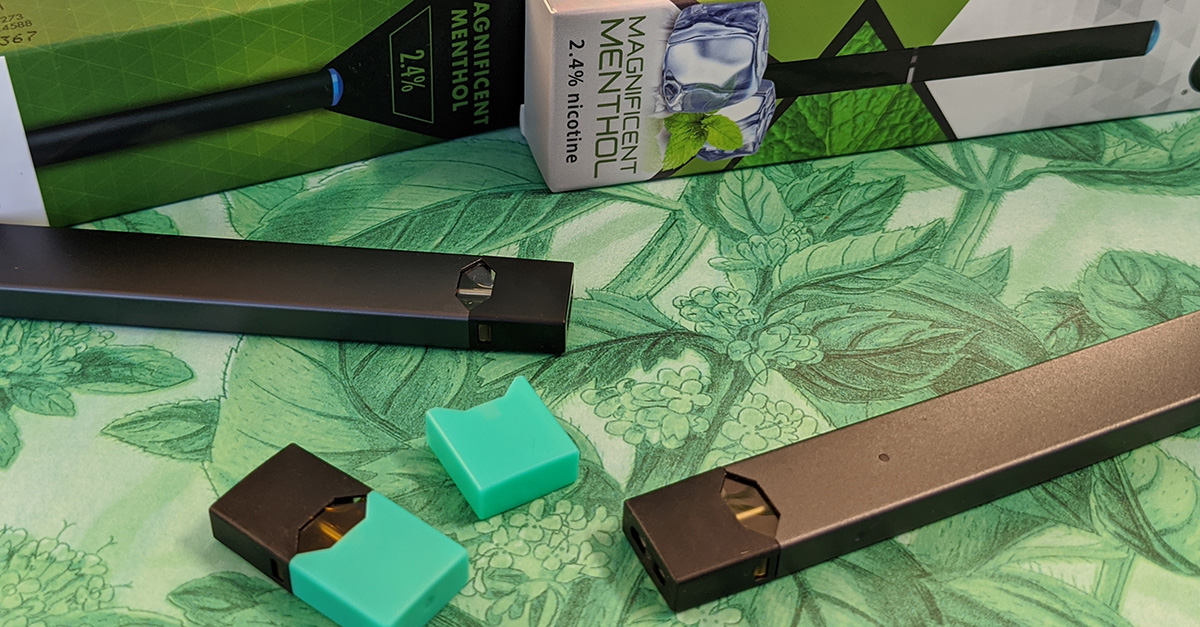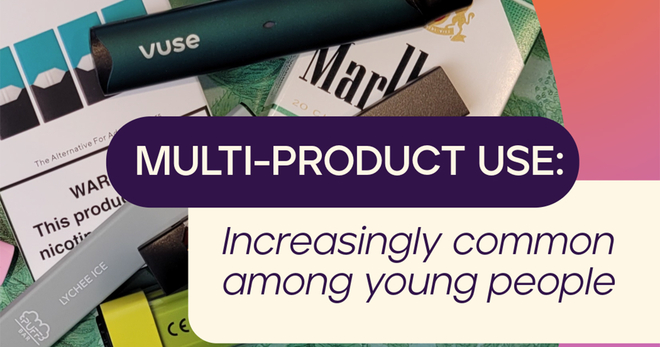Menthol e-cigarette ads rose after FDA guidance restricted some, but not all flavored e-cigarettes
According to a recent study in Tobacco Control, the proportion of menthol-flavored e-cigarette ads sent by email more than doubled from 22.5% to 52.2% following implementation of the 2020 Food and Drug Administration (FDA)’s restrictions on flavored e-cigarettes, which left a major exception for menthol-flavored products.
This study, which was conducted by Truth Initiative researchers, is the first to examine whether the FDA’s guidance changed email and direct mail advertising for flavored e-cigarettes. It also underscores the need for a comprehensive flavor policy covering all e-cigarette products and flavors – including menthol – to protect youth from e-cigarette use.
Flavors continue to be a major driver of e-cigarette popularity – of adolescents who vape, 8 in 10 use flavored e-cigarettes. Flavored e-cigarettes play a huge role in the initiation, continued use, and addiction to tobacco products among young people. In February 2020, the FDA implemented an e-cigarette enforcement policy that prohibited fruit, dessert, and mint-flavored cartridge-based sales, while allowing tobacco- and menthol-flavored cartridges, open-system, and disposable e-cigarettes to remain on the market. Consequently, disposable e-cigarettes like Hyde and Puff Bar, refillable devices such as Smok and Suorin, and menthol pod-based e-cigarettes were allowed to remain widely available in flavors appealing to young people. Many young people have switched to menthol as other flavors have become harder to come by and the market share of menthol e-cigarettes more than doubled in 2020 after the federal guidance on flavors was put in place.

Menthol e-cigarette ads more prevalent while ads for other flavors decline
Digital copies of 121 unique e-cigarette ads before and after the FDA policy was implemented were reviewed for the presence of flavors. Following FDA guidance, fewer e-cigarette ads were sent by email and direct mail overall and emailed ads for e-cigarettes in flavors other than menthol, like fruit and mint, decreased from 39% to 13%. However, the proportion of menthol-flavored ads sent by email more than doubled. There was no change in the relative proportion of email advertisements for unflavored e-cigarettes or mailed e-cigarette advertisements, either flavored or unflavored. These trends suggest that marketing efforts are shifting to flavored products that remain on the market.
Findings also suggest that partial flavor restrictions might not be enough to reduce the overall appeal and marketing of e-cigarettes to youth. “Rather, manufacturers and consumers are adapting to new FDA regulations. The restriction of some flavored e-cigarette products has resulted in a shift of the sales and marketing of restricted flavored e-cigarette products towards other available flavored e-cigarette products,” the authors write.
Comprehensive policies on menthol, flavored e-cigarettes needed
Shifts in the advertisements of flavored e-cigarettes still allowed on the market raise concerns about regulations that are not inclusive of all tobacco products and flavors. The FDA announced that it is on track to prohibit menthol flavors in combustible cigarettes and cigars in spring 2022. However, regulations on menthol-flavored e-cigarettes are less clear. Although the FDA authorized the marketing of the tobacco-flavored e-cigarette Vuse Solo in October 2021, the regulatory agency has yet to announce decisions on the most popular e-cigarette brands which continue to be marketed illegally and remain widely available, including Vuse’s menthol-flavored e-cigarette.
“A more comprehensive approach that includes the consideration of disposables, refillable devices, and other flavored e-cigarettes not covered by the current FDA guidance is needed to offer the most benefit for prevention efforts among youth and young adults,” the authors write.
A comprehensive approach is needed due to the disproportionate impacts that tobacco product marketing and use has had on Black communities. Menthol is a racial justice issue, as the tobacco industry has strategically and aggressively targeted the Black community with menthol cigarettes for decades, including by placing more advertising in predominantly Black neighborhoods and in publications that are popular with Black audiences. Today, nearly 9 in 10 Black smokers use menthol cigarettes, which are easier to smoke and harder to quit. Restrictions on menthol in all its forms are critical to address racial disparities in tobacco use.
More in emerging tobacco products
Want support quitting? Join EX Program
By clicking JOIN, you agree to the Terms, Text Message Terms and Privacy Policy.
Msg&Data rates may apply; msgs are automated.


